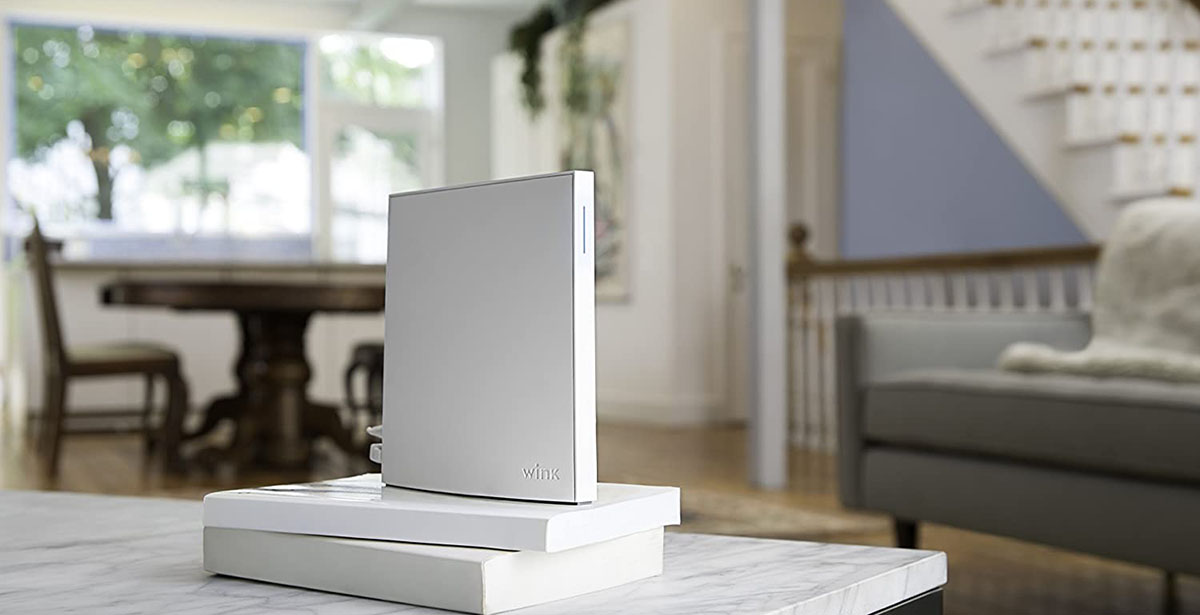Smart-home hubs have become the foundation of intelligent residences. They provide a central access point for controlling all of the smart gadgets on your premises. You don’t have to install separate apps from each manufacturer as long as the devices are compatible with the smart-home hub. The gadgets can interact with one another, and items like smart sensors, alarms, and lights can work in tandem. Smart-home hubs make home automation easy and convenient for owners.
What Are Smart-Home Hubs?
A smart-home hub is a device that provides a single platform for controlling smart devices in your home. It may allow you to operate all the compatible gadgets through one app while also enabling smart devices to communicate and interact with each other, irrespective of their manufacturer. Z-wave and Zigbee are the two most popular communication protocols used by smart-home hubs and smart devices. They may also support Wi-Fi and Bluetooth. A few products may employ proprietary technologies, like Lutron Clear Lighting and Kiddie. In addition to dedicated smart hubs available from manufacturers, like Philips Hue, Samsung SmartThings, and Wink Hub 2, many smart speakers or gadgets may come with integrated hubs. However, unlike smart hubs, smart speakers may not support all protocols.
The Pros and Cons of a Smart-Home Hub
There are both pros and cons associated with smart-home hubs. Here are a few of their advantages.
Centralized Control – The main advantage of a smart-home hub is centralized control. Manufacturers of intelligent devices provide a smartphone app for controlling them. If you are using gadgets from multiple manufacturers, you may have to install numerous applications. Having a smart-home hub allows you to control all the smart devices and gadgets through a single app. You don’t have to download separate apps from each device manufacturer. Instead, the smart-home hub’s app will enable you to access and operate all compatible devices. It makes it convenient to control the devices. Also, smart devices may use different protocols for communication. Having a single smart-home hub that supports Z-wave, Zigbee, Wi-Fi, and Bluetooth will eliminate the need for separate bridges.
Save Power – The second advantage of using smart-home hubs is that they save power. Wi-Fi uses more power and drains batteries faster as compared to Zigbee and Z-wave protocols. Devices that don’t require a smart hub mostly use Wi-Fi for facilitating communication and remote control. The battery of the smart device will discharge faster, requiring frequent replacement. On the other hand, Z-wave and Zigbee protocols are specially designed for smart devices. They need less power, and you won’t have to change or charge the batteries of devices frequently.
Scheduling and Customization – Smart-home hubs may facilitate the scheduling and automation of smart gadgets through their apps. You can turn devices on or off at a specific time or after an interval. Their apps also offer more customization options as compared to smart speakers.
Lower Network Usage – A smart-home hub can lower the bandwidth used by smart devices, preventing your wireless network from throttling. If you are using Wi-Fi for accessing your smart devices, it will consume the bandwidth of your home’s wireless network. It may not be an issue when using a few gadgets but can become a problem when you have a dozen Wi-Fi smart devices in your home. As smart-home hubs use Z-wave or Zigbee protocol, they don’t consume the wireless network’s bandwidth and operate using a different frequency band. Therefore, it can lower network usage and prevent throttling.
Despite their pros, smart-home hubs are not free from disadvantages either. A couple of them are discussed below.
Expensive
The primary disadvantage of smart-home hubs is that you have to spend extra money to purchase one. Most of them cost anywhere from $70 to $300 or even more. It increases your overall expense for home automation. While you may purchase a smart speaker with an integrated hub, it may limit the customization options available to you. They may not support all protocols used by smart devices either. Therefore, be prepared to spend a couple of hundred bucks on a smart-home hub.
Compatability
Also, a single smart-home hub may not work with all the smart gadgets in your home. It will depend on the protocols and devices it supports. You may have to invest in more than one hub or bridge, which will further increase the expenditure. It can be a significant drawback of these intelligent devices.
Do You Need a Smart-Home Hub?
So, do you need a smart-home hub or not? The answer to this question depends on two primary factors – the number of gadgets installed in your home and the communication protocols used by them.
Communication Protocol
You will have to consider the communication protocols used by the smart devices installed at your residence. Wi-Fi and Bluetooth devices don’t necessarily require a bridge or hub as they can connect to your home’s wireless network or be accessed directly through a smartphone. However, if you have a Z-wave or Zigbee smart device that requires the use of a smart-home hub, you will need to purchase the same. Otherwise, you may not be able to access the intelligent gadget remotely through its app or virtual assistants. Therefore, check if your smart devices require the use of a smart-home hub.
Number of Devices Used
Whether you need a smart-home hub or not will also depend on the number of devices used in your home. If you use many smart devices, then consider purchasing a smart-home hub. It will reduce the network bandwidth used by the gadgets and prevent your Internet speed from throttling.
Ultimately, your requirements determine if you need a smart-home hub or not. If you will be happy with the limited customization options of Wi-Fi devices or use smart speakers and mesh systems that support Z-wave and Zigbee protocols, then you can skip purchasing a dedicated bridge. Otherwise, opt for a smart-home hub that will work with your preferred smart devices.





